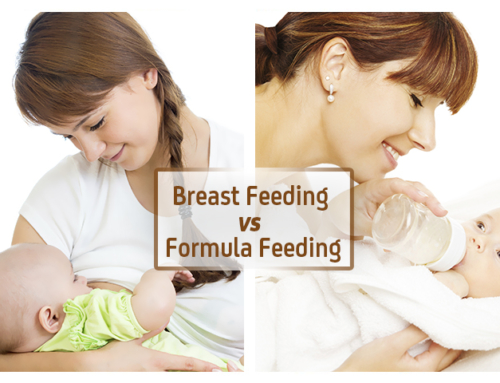 Yesterday the Alpha Parent wrote a piece entitled “Why Married Parents are Better Parents” (see here). Needless to say quite a few people got upset by the piece. It was not a look at married versus single parents though she quickly pointed out that most research shows “two parents are better than one” (we’ll discuss this below too), but rather she focused on the issue between marriage and simple cohabitation.
Yesterday the Alpha Parent wrote a piece entitled “Why Married Parents are Better Parents” (see here). Needless to say quite a few people got upset by the piece. It was not a look at married versus single parents though she quickly pointed out that most research shows “two parents are better than one” (we’ll discuss this below too), but rather she focused on the issue between marriage and simple cohabitation.
I’m not going to argue with the stats she cited because she didn’t misstate them (you can see her piece for all the citations, I won’t repeat them here). It’s true that:
- Men and women generally commit differently; women via cohabitation, men via marriage
- Unmarried parents to children under 5 are twice as likely to split up compared to married parents
- 30% of children in unmarried but cohabitating family units experience a family structure change between 9- and 24-months (compared to 2% of children in married family units)
- Cohabitators who never marry are worse-off financially, with 78% less income than a married family (yet it’s not a reason not to marry)
- Child poverty rate is 5 times higher in cohabitating families relative to married families
- Some research suggests relationship quality decreases more in cohabitating couples than in married couples
- Cohabitating couples tend to have lower relationship quality and more disagreements
- Children of cohabitating families often have less access and less emotional ties to extended family
- In childhood and adolescents, children in cohabitating families are approximately 5-6 times more likely to have emotional and/or behavioral problems; they are also more likely to have academic difficulties
- Cohabitating relationships are more likely to become violent and even more likely to experience “severe” domestic violence
- Children in cohabitating relationships are more likely to experience child abuse (and yes, it’s biological families)
With all this, why am I calling it out? I love science and science has told us a lot about cohabitating relationships, right?
Not really.
One of the biggest problems in social science research is the ability to properly define a variable. Health outcomes are easy – you’re sick or you’re not, you had a c-section or didn’t, you were diagnosed with depression or not – but social? It’s harder because the constructs are more elusive. It’s why we end up with the third variable problem: We think we’re assessing real relationships and then discover that really it’s another variable that is related to what we think we’re measuring that matters.
I said I would talk about the single parenting issue and though I’ve spoken about it before (see here), here we go: The issue really comes down to support. What researchers are measuring in much of the research on single versus two-parent households is the degree of support: Emotional, financial, and practical. It’s harder for many single parents to have the level of support that two parent households often have, but there are cases in which single parents are surrounded with support from extended family and friends and two parent households suffer from a lack of all kinds of support. If you want to compare outcomes, you should really be looking at the degree of support people have. (Even then though you’ll get your risk analysis information but it won’t dictate the outcomes because outcomes are influenced by more than just that.) It just so happens that measuring the number of parents in a house is easier than trying to fully establish one’s support network and because of the high (but imperfect) correlation between the two, researchers continue to do what is easiest.
In the current case, I would argue what is really being assessed is commitment. Families – no matter what they look like – who are committed to each other and their family through thick and thin are going to have better outcomes. And more often than not (but not always) commitment in our society ends in marriage (when it’s allowed). It just so happens that measuring commitment is rather difficult so the easiest alternative is to look at marriage. Another way to look at it is this: Do you believe that any relationship would improve simply by getting married? No, and arguably the divorce rate tells us as much. But because the issue isn’t about marriage per se, but rather a co-occurring phenomenon (i.e., commitment), we can no longer say that married parents are “better” parents, can we? That statement implies there is something about the marriage that makes people better parents when in reality the issue is often the commitment level to the relationship on is in, whether it’s a married relationship or not.
The question now should become why do families without this level of commitment end up with such higher risks of negative outcomes? Especially the children. I could hypothesize on the reasons for pages – from the resentment that may emerge from this lack of commitment expressing itself as frequent fights and even violence (which we know affects child outcomes) to the anger at the child for “keeping” someone in a relationship they aren’t committed to and don’t care about – but I will leave that for other researchers and other discussions.
At the end of the day what we need to be clear on is that when we compare two-parent households, married parents aren’t inherently better parents. But arguably committed parents are.






Your last sentence is exactly right… but my reading of the research around cohabitation and marriage is that committed parents are much more likely to be married than cohabiting.
This was released just today, to further support this: http://psycnet.apa.org/psycinfo/2013-43974-001/
It’s true – and that’s why it’s a third variable problem 🙂 There’s a high correlation between the two, but it’s not perfect and committed is arguably the more predictive of the two!
I read this that on the alpha parent, and to be honest I do think married parents are… sort of.. “better.” But I also consider parents who are engaged/committed to be in the same category as married parents.
This is such an odd topic. I see a lot of different type of families from different socioeconomic backgrounds and it makes it very easy for me to compare.
What I see to be true is that committed/married/engaged parents tend to have the best family lifestyle. I see highly committed couples (Gay and Straight) to be the most likely to work as a team where as couples who are just together together are more likely to have one parent pulling all of the weight.
Although less committed parents are not offering the “best” family setting or even what I believe is the “best’ example I don’t think that they are “bad” parents. Average seems more like the proper word and really there isn’t too much wrong with average.
Thank you for actually putting thought into this article. Marital status does not and will not define peoples level of commitment to each other or their families. To say that two people with a marriage license are better parents or more committed is just utterly ignorant and naive, IMO.
Hi there. I’d like to reply to your point:
“That statement implies there is something about the marriage that makes people better parents”
I explained that there IS indeed something about marriage that makes people better parents. It’s, in part, due to the social and legal declaration that accompanies marriage. I explained this in my piece. This issue is not about improperly defined variables.
Then I would have to say I disagree with that.
But how do you feel the social and legal declaration itself MAKES people better parents? I didn’t get that from your piece. And I certainly don’t get it from the research that there’s something inherent in marriage, especially with respect to how researchers actually assess these types of constructs.
Did you read the part about how the public declaration of marriage impacts upon the behaviour of the couple? For instance, the argument styles.
But that was one area which seemed to be your opinion, not scientific fact. Unless you have another citation for it which I would happily read. Even Benson’s book is still not science, but rather his opinion with some science for some areas. I have yet to see research on how the public declaration of marriage impacts the couple’s behaviour, but I’d be happy to read some!
I’m a single, COMMITTED parent, supported by my parents, as well as my child’s father……We are all committed to raising my child with as much love and support as possible.
I was a private tutor for a long time – and have seen families in which both parents were still present and married – and who had sizable incomes…….yet, there was yelling and screaming in the home…..and the children were miserable.
You know what matters? Does the child have parents who are loving and kind and committed to that child’s growth and success? That’s what matters – and that’s what every child deserves, regardless of whether or not that love comes from a married couple, a gay couple, a divorced couple – or a single mom / dad.
To echo Annie, as an early childhood teacher I have met high-income families with married parents and very unhappy children. The parents communicate with harshness, disregard, carelessness, low-respect… often ignoring the child until I draw their attention to him / her. I have to agree that marriage is no guarantee of better parenting.
I’m glad somebody straightened that out! I was insulted by the original Alpha Parent article. There are multiple reasons people decide NOT to marry: the connotations of marriage, the traditional roles associated with being a husband or wife (I, for one, don’t EVER want to be called a wife, we are PARTNERS, and I want that to be clear to everybody), the history of marriage, the fact, that marriage in my country is unavailable to gay people (I take active part in the pro-civil union movement). You’re saing that the public declaration of marriage changes things? For me, it would be betraying what I believe in, betraying my values. It would change something – I would feel like shit! The fact, that we had a baby together after 10 years of being together, constitutes a declaration of commitment.
Alpha Parent, I really hope you will decide to withdraw what you said and delete this horribly insulting post. It’s misleading and it’s manipulative. All you could possibly say is that married parents tend to be more commited (so, in some way, “better”). Not the other way around.
You might say: “Why are you so angry? Everyone has the right to their own opinion. If she believes married parents are better, so be it, why does it concern you?”.
Well, the reason I loved the Alpha Parent website so much, is that it gave me scientific facts and exposed all the bullshit found on other websites and in parenting books. I would read those articles and think: “If you’re writing something intended for new parents, you really SHOULD know what you’re talking about, you should have your facts backed up by science. Why is it the authors of these books and texts don’t care about that? It’s such a huge responsibility! What they say influences parenting styles, parents make important decisions based on what they read”.
And then I get this horrible post, which is based on misinterpreted statistics and makes claims that are generalized and don’t take into account the diversity of relationships. Remember what I said about responsibility?
[…] that said, it’s not marriage alone that gives couples magical parent powers: it’s the stability of a home, a good relationship, […]
[…] that said, it’s not marriage alone that gives couples magical parent powers: it’s the stability of a home, a good relationship, […]
[…] posto, não é apenas o casamento que dá aos casais os poderes mágicos para educarem bem os filhos: é a estabilidade no lar, o bom […]